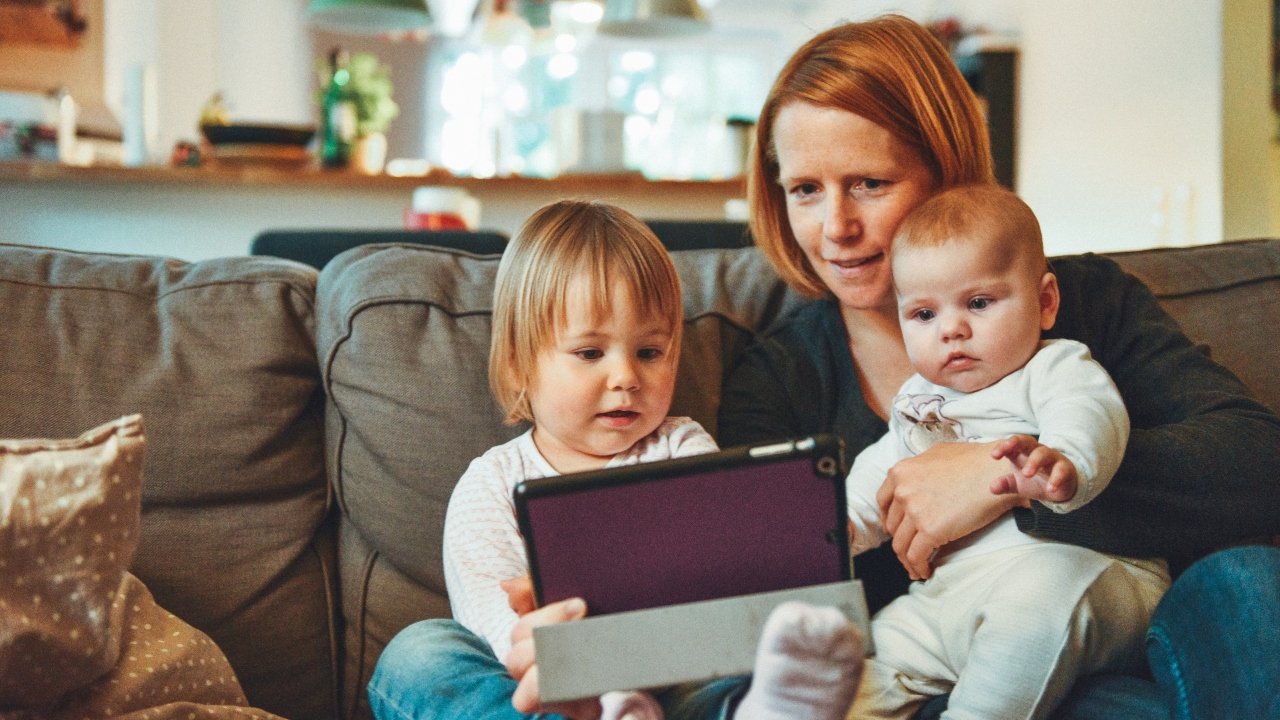
Why Parents Should Be Cautious Posting Kids’ Photos on Social Media
By Movieguide® Contributor
While many parents love sharing photos of their children on social media, are there dangers to this seemingly innocent and commonplace decision?
“This phenomenon is called ‘sharenting,'” NPR wrote on Instagram, “a portmanteau of ‘sharing’ and ‘parenting.'”
The term describes “all the ways that parents, aunts, uncles, teachers, coaches and other trusted adults in a kiddo’s life transmit children’s private information digitally.”
However, NPR reveals, “there are potential dangers to constantly posting about your child online, says Leah Plunkett, a faculty member at Harvard Law School who specializes in children, family law and technology.”
In a recent interview, she discussed the dangers of sharing photos of your child online.
“There is a thriving black market for personally identifiable information,” Plunkett said, explaining how something as simple as a birthday photo could reveal a child’s name, age and birthdate. “Kids’ Social Security numbers, when combined with date of birth, name and address, are often good targets for identity theft. Most minors don’t have credit attached to their Social Security numbers, so [someone may be able to use them to] open fraudulent lines of credit.”
She emphasized that reading the fine print when it comes to signing agreements is key.
“Parents should be aware that they’re not going to know at the moment where a piece of information, photo or video, might go,” Plunkett added. “When we click ‘I accept,’ those agreements give companies and third parties a lot of latitude about what they can do with your data.”
She dives into child privacy in her 2019 book, “Sharenthood: Why We Should Think Before We Talk About Our Kids Online,” where she discusses “how adults unwittingly compromise children’s privacy online.”
While an advocate for social media safety, Plunkett is not against the technology altogether, but she does offer some insight into how she avoids oversharing.
“Since I started researching this topic, I adjusted my own personal compass to be very minimalist,” she explained. “I pretty much never post my kids on social media. If I do, you don’t see their faces or anything that would identify them. I don’t use full names. I don’t celebrate their birthday on social media. I don’t show the kids standing in front of where they go to school.”
“I follow a ‘holiday card-or-less’ rule of thumb when sharing on social media: updates you’d be comfortable with anyone, from your great aunt to your boss, seeing. Information that’s not going to embarrass anybody and isn’t particularly private,” Plunkett added.
Movieguide® previously reported on the dangers of social media as a whole:
It’s no secret that mental health – particularly among the youth – has reached a crisis as more and more people struggle with issues such as anxiety and depression. The study found that there is not enough evidence to directly link this change to social media, but the technology has been shown to make pre-existing mental health problems among adolescents worse.
A primary example of this comes from comparison, as children and teens already struggling with comparison find the problem worsened by scrolling on social media. This is directly linked to lower self-esteem as they begin to view everyone else as better than them.
Another issue currently plaguing younger generations is incredibly short attention spans. The study found that social media use is directly linked to problems with focus for numerous reasons.
Social media content is quick to consume, teaching children and teens how to take in an idea and move on to the next one quickly, reducing their ability to focus on a topic for longer. Social media also harms their focus as the constant barrage of notifications draws their attention away from their current task.
Reduced attention span was also caused by a reduction in sleep, another issue that the study explored. Social media has the potential to disrupt sleep in three ways: displacing time meant for rest, disrupting circadian rhythms and psychological stimulation, which can make falling asleep more difficult.
Questions or comments? Please write to us here.


 - Content:
- Content: 

